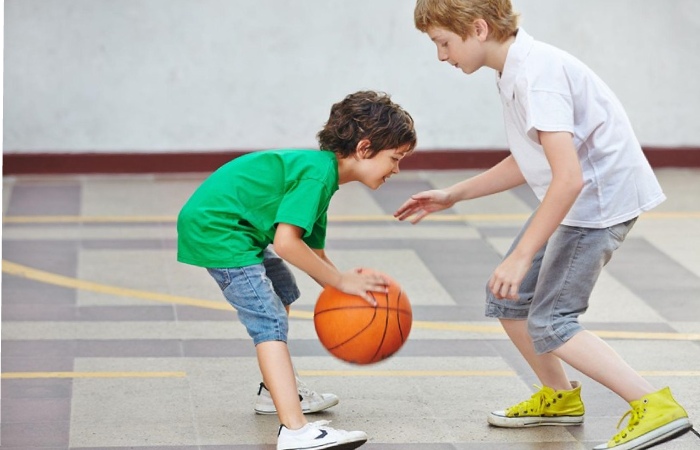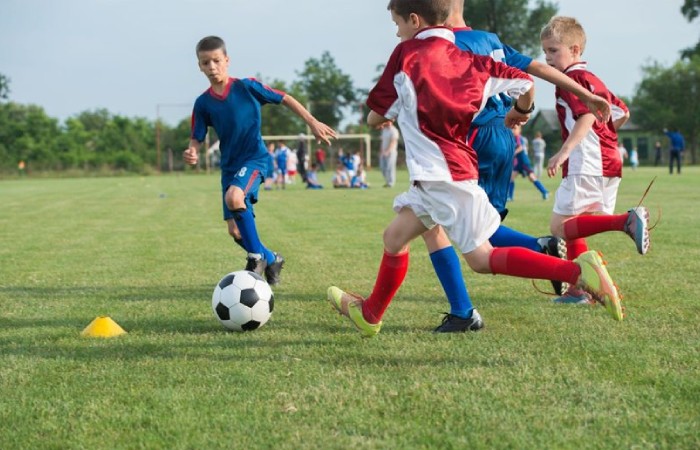Youth Sports Safety offers many benefits for kids but, as with all physical activities, there is a certain level of risk involve. Thankfully, there are multiple concrete steps that you can take to reduce their chances of injuring and help keep them safe. Here are nine things that you do to help protect your child while they play youth sports, from getting them a premium mouthguard to making sure they get enough sleep:

Get a pre-season physical.
Pre-season physicals are essential before every season — in fact, some teams require that your child get a physical before they can play. Pre-season physicals ensure that your child is in good health and cleared to play their chosen sport. These exams also establish a baseline that you can use as a comparison point in case your child sustains a concussion or has another injury during the season.
Ease into the Season.
Your child shouldn’t sit around waiting for the season to begin. Instead of going from the proverbial zero miles an hour to 100 overnight, they should use the weeks leading up to the start of practice to ease back into physical activity. Start them off with short, light workouts a couple of days a week, then work on increasing the frequency, length, and intensity to match the practice schedule. By slowly ramping up their physical activity, you will decrease their risk of injury and help their bodies get used to the new exertion.
Check their gear.
Odds are that some of your child’s gear from last year will need to replace, either because it no longer fits or because it’s been damaged. Do a fit check on everything and make a note of what needs to replace. Uniforms and shoes are an obvious one, but don’t forget other items such as custom mouthguards and helmets. If their gear is damaged, see if it can be repaired. If not, then buy them a replacement before the season starts.

Touch base with their coach.
Coaches play a big role in keeping their players safe and healthy. Look for a coach who is more focused on the well-being of their players than on winning games at any cost (including potential injury to their players). If their current coach doesn’t seem that focused on safety and injury prevention, it might be time to find another team. At least one of the coaches should also be certified in CPR in case of emergency, and they should also have a first aid kit on hand at every practice and game so they prepare to treat minor injuries. Women’s Printed Suit Set
Warm up and cool down.
Warming up and cooling down are essential for preventing injuries during any physical activity, including sports practices. Before every workout or practice, your child should do 5 to 10 minutes of light cardio to get their heart pumping and their body warmed up. They should also take a similar amount of time to cool down after every practice, and they can take longer if they want to really stretch out their sore muscles and do other recovery work.
Stay hydrated.
Staying hydrated helps your child play at peak performance and also guards against dehydration and other heat-related incidents. Encourage your child to stay hydrated not only during practice, but all during the day. They should take small sips more frequently, instead of big gulps, to promote better absorption and prevent the water from sloshing around in their stomach.
Get them their own water bottle and let them personalize it to encourage them to drink more water. They might also find it beneficial to switch to sports drinks during and after practice to help replenish the electrolytes they lose through sweat.

Eat a healthy diet.
Your kids need the proper fuel to help their bodies recover from practice. Some indulgences in moderation are fine, but overall their diet should focus on lean proteins, whole grains, fruits, vegetables and healthy fats. Try to limit their intake of foods high in sugar, sodium and/or unhealthy fats, as well as their consumption of highly processed foods. Keep healthy snacks on hand in both the kitchen and car since kids will probably be hungry right after practice and will need to refuel right away.
Get enough sleep.
Your body needs sleep to recover and rebuild, which is why it’s so important that your kids are getting enough sleep during the season (and all year round, truth be told). Unfortunately, most kids are sleep-deprived just like adults are. Ideally, your kids need to be in bed for a minimum of 9 hours a night, and some kids need as much as 12 hours of sleep every day. Don’t over-pack your child’s schedule and make sure to leave plenty of time for rest.
Play by the rules.
Kids, especially younger children, can frustrate over the seemingly endless rules of sports. They don’t understand why they have to wear their clear custom mouthguard all the time or why they can’t lead with their head when they tackle. Talk with your kids about why certain guidelines exist rather than just telling them that they have to follow the rules. By explaining the safety reasons behind them, you will encourage your kids to understand and play by the rules.
Help keep your child safe while playing youth sports by following these tips. Youth sports can be a hugely enriching experience for your child, but they do require some preparation in order to reduce their risk levels. By following these steps, you will increase your child’s chances of having a safe and fun season full of fond memories.
